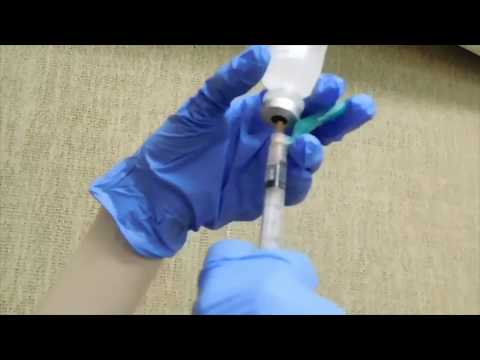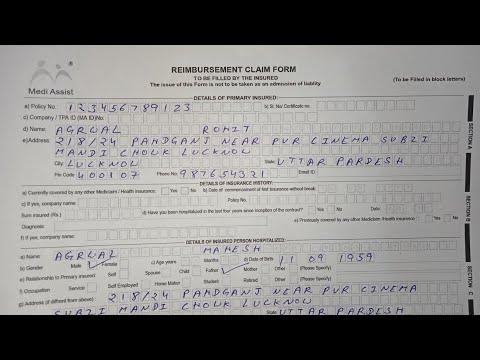Medical Assistants and Malpractice: What You Need to Know
Contents
- What is medical malpractice?
- Who can be held liable for medical malpractice?
- What are some common examples of medical malpractice?
- How can medical assistants help prevent medical malpractice?
- What should medical assistants do if they witness medical malpractice?
- How can medical assistants protect themselves from being held liable for medical malpractice?
- What are some common myths about medical malpractice?
- What are the consequences of medical malpractice?
- How can patients prevent medical malpractice?
- How can the healthcare system prevent medical malpractice?
As a medical assistant you may be wondering if you can be held liable for malpractice. The answer is yes, you can be held liable for medical malpractice just like any other medical professional. However, there are steps you can take to minimize your risk.
Checkout this video:
What is medical malpractice?
Malpractice is professional negligence by a health care provider. It can cause serious injury or even death to a patient. To win a malpractice lawsuit, the plaintiff (the person filing the lawsuit) must prove that the health care provider:
-Breached the standard of care (that is, failed to do what a reasonably careful provider would do in the same circumstances)
-This breach caused the plaintiff’s injury
-The plaintiff suffered damages (meaning, he or she suffered a financial loss because of the injury)
There are many different types of medical malpractice, but some of the most common include:
-Surgical errors: A surgeon may operate on the wrong body part, leave a foreign object inside the patient’s body, or perforate an organ.
-Anesthesia errors: An anesthesiologist may give too much or too little anesthesia, fail to monitor the patient’s vital signs, or leave the patient unattended.
-Diagnostic errors: A doctor may fail to diagnose a disease or condition, make a delayed diagnosis, or misdiagnose a condition.
-Birth injuries: These can occur when a health care provider fails to monitor the mother and baby during labor and delivery, uses excessive force during delivery, or makes incisions in the wrong place.
If you think you may have been a victim of medical malpractice, it’s important to talk to an experienced attorney who can evaluation your case and help you understand your legal options.
Who can be held liable for medical malpractice?
Doctors are not the only ones who can be held liable for medical malpractice. In some cases, nurses, physician assistants, and other types of Medical assistants may also be held liable. Here are some things you need to know about Medical Assistants and malpractice.
What is medical malpractice?
Medical malpractice is defined as negligence on the part of a healthcare professional that results in injury or death to a patient. It can also include errors in diagnosis, treatment, or aftercare.
Who can be held liable for medical malpractice?
In most cases, only licensed healthcare professionals can be held liable for medical malpractice. This includes doctors, nurses, and other types of licensed medical assistants. However, in some cases, unlicensed individuals such as office managers or receptionists may also be held liable if they are found to have contributed to the negligence that resulted in injury or death.
What are the most common types of medical malpractice?
The most common types of medical malpractice include errors in diagnosis, treatment, or aftercare. This can include prescribing the wrong medication, performing the wrong procedure, or failing to properly treat a patient after a procedure. Other common examples include birth injuries, surgical errors, and failure to diagnose cancer or other serious conditions.
What are some common examples of medical malpractice?
Patients in the United States have a right to expect a certain level of care from their medical providers. When this standard of care is not met, and a patient is harmed as a result, it may be considered medical malpractice.
There are many different types of medical malpractice, but some of the most common include:
-Misdiagnosis or delayed diagnosis: This can happen when a doctor fails to properly diagnose a disease or condition, or when they delay making a diagnosis. This can lead to patients not getting the treatment they need in a timely manner, or to them receiving unnecessary treatment for conditions they don’t have.
-Birth injuries: These can occur when medical professionals fail to properly monitor and care for pregnant women and their babies during labor and delivery. birth injuries can cause lifelong problems for both mother and child.
-Surgical errors: These can occur when surgeons make mistakes during an operation, such as operating on the wrong body part or leaving surgical instruments inside the patient’s body. Surgery errors can be very serious and life-threatening.
-Anesthesia errors: These occur when anesthesia is not administered properly, leading to patients being awake during surgery or being given too much or too little anesthesia. Anesthesia errors can have serious consequences, including death.
If you believe you or a loved one has been the victim of medical malpractice, it’s important to speak with an attorney who specializes in this area of law. An experienced attorney will be able to review your case and determine if you have grounds for a claim.
How can medical assistants help prevent medical malpractice?
As a medical assistant you are part of the front line defense against medical errors and malpractice. You play a vital role in patient safety, and there are several things you can do to help prevent errors from happening.
First and foremost, always follow infection control guidelines. Practice proper hand-washing techniques, wear gloves when contact with bodily fluids is likely, and clean all surfaces that come into contact with patients. These simple steps can help prevent the spread of disease.
Next, be aware of the potential for medication errors. Make sure you know how to properly measure and dispense medication, and check for drug interactions before administering medication to a patient. It’s also important to verify that a patient is taking the correct dosage of their medications.
Lastly, always double-check that you have correctly entered a patient’s information into their medical record. This includes their name, date of birth, insurance information, and any allergies or adverse reactions to medications they may have. Incorrect information in a medical record can lead to serious errors down the line.
By following these simple tips, you can help prevent medical errors and malpractice from occurring in your workplace.
What should medical assistants do if they witness medical malpractice?
If you are a medical assistant and witness medical malpractice, it is important to know what to do. Medical assistants have a duty to report any incidents of medical malpractice that they witness. The first step is to report the incident to your supervisor. If your supervisor does not take action, you can contact the state medical board or the Joint Commission. It is important to document any incidents of medical malpractice that you witness, as this will help support your claim.
How can medical assistants protect themselves from being held liable for medical malpractice?
As a medical assistant, you are an important member of the healthcare team. You play a vital role in patient care and contribute to the overall efficiency of the medical practice. However, you also face risks associated with your job. One of the biggest dangers you face is being held liable for medical malpractice.
Medical malpractice is defined as any action (or inaction) on the part of a healthcare provider that results in harm to a patient. It can take many forms, from making a medication error to failing to properly sterilize equipment. If a patient is harmed as a result of your actions (or inaction), they may file a lawsuit against you and/or your employer.
So how can you protect yourself from being held liable for medical malpractice? The best way to do this is to always act professionally and work diligently to provide quality patient care. In addition, you should be aware of common mistakes that can lead to medical malpractice claims and take steps to avoid them. Some of the most common mistakes include:
-Failing to obtain informed consent: Before performing any procedure, it is important to obtain informed consent from the patient (or their legal guardian). This means ensuring that the patient understands the risks and benefits associated with the procedure and giving them the opportunity to ask questions.
-Failing to properly document patients’ medical histories: It is important to document all aspects of each patient’s medical history, including their past diagnoses, medications, allergies, etc. This information will help you make more informed decisions about their care.
-Ordering unnecessary tests or procedures: Ordering unnecessary tests or procedures puts patients at risk for harm and can also lead to wasted healthcare dollars. Make sure you only order tests or procedures that are medically necessary.
-Failing to follow up with patients: After a patient leaves your office, it is important to follow up with them as needed. This includes scheduling follow-up appointments and answering any questions they have about their care.
-Making medication errors: Medication errors are one of the most common types ofmedical malpractice claims. Be sure to double check all medications before giving themto patients.
By following these tips, you can help protect yourself from being held liable for medical malpractice claims.
What are some common myths about medical malpractice?
There are many myths about medical malpractice. Below are some common myths:
-Medical assistants are not at risk for being sued for malpractice.
-Malpractice insurance is not necessary for medical assistants.
-Malpractice lawsuits are rare and most are unfounded.
These myths can lead to complacency among medical assistants, which can increase the risk of errors and potential lawsuits. It is important for medical assistants to understand the basics of medical malpractice and how to avoid it.
What are the consequences of medical malpractice?
Medical malpractice is a serious issue that can have a lasting impact on patients, families, and healthcare providers. In the United States, medical malpractice is the third leading cause of death, behind only cancer and heart disease. While most medical professionals are dedicated to providing quality care, there are instances where things can go wrong. When this happens, it’s important to know what your rights are and what you can do to seek compensation.
There are a few different types of medical malpractice, but the most common is negligence. This occurs when a healthcare provider fails to provide the standard of care that a reasonable person would expect in a similar situation. This could be due to errors in diagnosis, treatment, or aftercare. Another type of medical malpractice is known as battery. This occurs when a healthcare provider intentionally harms a patient or performs a procedure without the patient’s consent.
If you or a loved one has been the victim of medical malpractice, it’s important to seek legal assistance as soon as possible. An experienced medical malpractice attorney will be able to evaluate your case and determine if you have grounds for a claim. If so, they will fight for your rights and help you seek the compensation you deserve.
How can patients prevent medical malpractice?
Patients can play a role in preventing medical malpractice by being proactive in their own healthcare. Here are some tips:
-Educate yourself about your health condition and treatment options. The more you know, the better able you will be to make informed decisions about your care.
-Make sure all your medical records are up to date and complete. This will help your healthcare team make more informed decisions about your care.
-Communicate openly and honestly with your healthcare team. Be sure to ask questions if you don’t understand something.
-Follow your treatment plan as prescribed. This will help ensure that you get the most effective care possible.
-Report any changes in your condition to your healthcare team right away. This will help them provide the best possible care for you.
How can the healthcare system prevent medical malpractice?
The healthcare system can work to prevent medical malpractice in a number of ways, most notably by ensuring that patients are well-informed about their rights and by providing resources for them to find quality care.
One way the healthcare system can help prevent medical malpractice is by ensuring that patients are aware of their rights. For example, patients have a right to know what type of care they will receive and whatoptions are available to them. Informed patients are more likely to make choices that are in their best interest and are less likely to be taken advantage of by unscrupulous providers.
Another way the healthcare system can help prevent medical malpractice is by providing resources for patients to find quality care. For example, the healthcare system can provide directories of doctors and hospitals that have been rated by independent organizations. Patients can use these resources to choose providers who have a history of providing high-quality care.
Ultimately, the healthcare system cannot completely eliminates the risk of medical malpractice. However, by taking steps to ensure that patients are informed and by providing resources for them to find quality care, the healthcare system can help reduce the incidence of medical malpractice.







